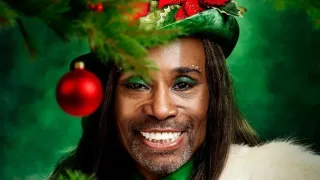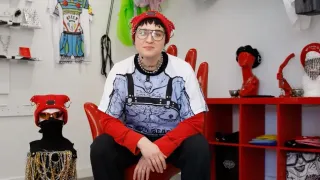
4 hours ago
'The Royal We': Roddy Bottum’s Memoir Is the Queer Punk Odyssey We Need Right Now
READ TIME: 4 MIN.
When was the last time a rock memoir felt less like a checklist of backstage antics and more like a love letter to a queer past we’re still piecing together? Enter Roddy Bottum’s The Royal We—a book that’s as much about finding your voice as it is about the clang and glamour of ‘80s San Francisco, written by a man who’s lived the revolution from the inside out .
Roddy Bottum, Faith No More’s ever-iconoclastic keyboardist, might be credited with bringing new sounds to alternative rock, but his real legacy might just be this: showing queer kids everywhere what’s possible when you live—loudly, messily, and without apology. If you’re imagining a tell-all about band squabbles and riotous tours, prepare for something richer, weirder, and infinitely more human .
Bottum’s journey begins in Los Angeles, where growing up gay in the ‘70s and ‘80s meant learning to be your own role model. “I had no template, no older gays to make it make sense,” Bottum writes—his honesty both raw and exhilarating . He doesn’t flinch from the darkness, either: the book plunges into the AIDS crisis, the heartbreak of addiction, and the kaleidoscopic weirdness of San Francisco’s pre-tech-boom glory days.
This city becomes its own character—a place of “bicycle messengers, punk rock, street witches, wheatgrass, and rebellion,” a magical landscape Bottum paints with wit and affection . If you’ve ever felt the ache for a queer world that’s vanished, The Royal We is a resurrection.
Forget the rockstar myth. Bottum’s story is about improvisation—the art of inventing yourself when the world refuses to give you a script. In 1992, at the height of Faith No More’s fame, Bottum came out publicly, detonating the tired notion that queerness and rock couldn’t coexist .
That same year, he co-founded Imperial Teen, helping to birth what we now call “alternative queer rock” . For LGBTQ+ readers, it’s electrifying to witness someone who didn’t just survive as a gay man in the macho world of arena rock—he changed the rules, created space, and brought others along for the ride.
The Royal We doesn’t gloss over the hard stuff. Bottum writes candidly about addiction—the “dark and harrowing past” that nearly consumed him, as he puts it—but what’s striking is the utter absence of self-pity . His voice is clear-eyed, often funny, and always compassionate. “It’s a poetic survey of a time and a magical city that once was and is no more,” notes one reviewer, and it’s true: Bottum’s memoir is both an elegy and a celebration .
On every page, Bottum interrogates what it means to be a “gay man figuring out how to be a gay man”—not just in music, but in life. His reflections on love, loss, and chosen family echo the struggles and joys of queer communities everywhere .
The Royal We is peppered with cameos from icons—Kurt and Courtney, Guns N’ Roses, the punks and poets that animated San Francisco’s wild nights . But Bottum never loses sight of the everyday heroes: the friends who didn’t make it, the artists who changed him, the lovers who shaped his journey.
For those who’ve devoured Kathleen Hanna’s Rebel Girl or Patti Smith’s Just Kids, Bottum’s memoir feels like the next chapter in queer literary lineage—a bridge between the subcultures that built us and the futures we’re still dreaming .
Roddy Bottum isn’t done inventing himself. Since moving to New York in 2010, he’s collaborated with queer luminaries like JD Samson and founded Man on Man—a band with his partner, Joey Holman, that’s as tender as it is defiant . He’s currently developing a Sasquatch opera (yes, really) and remains a creative force in the city that never sleeps.
For LGBTQ+ readers, The Royal We is essential reading—a reminder that visibility isn’t something handed down, but something fought for, year after year, album after album, page after page.
Ultimately, what makes The Royal We so vital isn’t just Bottum’s status as a queer rock elder. It’s his willingness to show all the messy, beautiful contradictions of a life lived at the intersection of music, art, and identity.
In the book’s most quotable moments, Bottum writes with the “right amount of flourish and punk abandon,” as Chloë Sevigny puts it—a voice that is both vulnerable and unbreakable . Courtney Love calls it “brilliant and gorgeous,” and Kim Gordon hails its “honest and extremely well-articulated” storytelling .
For a generation of queer readers raised on stories of survival and reinvention, Bottum’s memoir is a dazzling, necessary addition—a punk odyssey for anyone who’s ever felt like the only one in the room, and a celebration for those who know we’re never truly alone.
The Royal We is available now through Jawbone Press, with special book events coming to New York, Los Angeles, and San Francisco this autumn . Whether you’re a Faith No More superfan, a punk history nerd, or just hungry for a queer narrative that refuses to hide, this is the memoir you’ve been waiting for.






